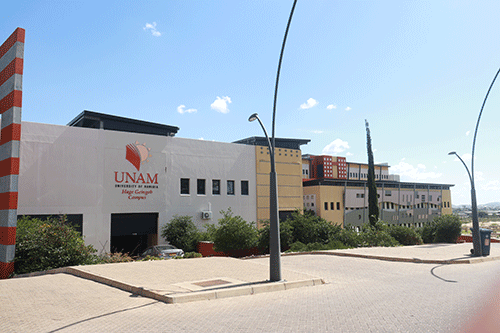More and more Namibians are applying for programmes offered by the University of Namibia’s School of Medicine, which receives over a thousand applications annually for only 70 available places.
To address an acute deficiency of qualified medical doctors, Namibia established the first medical school, namely the University of Namibia’s School of Medicine, which welcomed its first intake of students in
2010.
Providing an update last week in the National Assembly on the admission of the first-year medical students at Unam, higher education minister Itah Kandjii-Murangi said for 2023, the school received 1 428 applications.
“The interest to pursue medicine among the Namibian citizenry is very high. Of these applicants, only 337 met the minimum requirement for admission into medical training. From this figure, only 70 students could be admitted, and 267 students could not be admitted due to limited space and other factors,” the minister announced.
In its quest to uphold regional representation in admission into the medical school, Kandjii-Murangi clarified that Unam uses a regional quota system.
“The quota system has been developed to ensure equity and not necessarily equality in regional representation. The quota system follows a methodology of assigning a ratio to the population size of the specific region. Each of the 14 regions in Namibia is allocated a quota based on the regional population, based on the recent national census data,” she explained.
Therefore, mathematically, regions with high populations receive higher quota allocations.
When a regional quota cannot be filled with qualifying applicants, the unfilled places are returned to the pool, and filled by the next best national candidates.
In recent years and in their attempts to bring regional balance to this flagship programme, top qualifying students were academically ranked and selected for enrolment into the medical school.
However, the minister pointed out that experience and practice have shown over the years that high performance sometimes comes with a clear focus on the field of study.
According to her, that field may not necessarily be the field of medicine. Also, high performance is not always a good indicator of interest, tenacity, passion, resilience and consistency in self-application.
“The quota system may not be fair to students with higher points, for instance, say from Windhoek, who are not admitted into the medical school, in order to provide for other students from other regions (those who are top performers in those regions), with lower points, but meeting the minimum requirements.
Currently, the quota system as it is used as a tool for selection seeks to address regional representation, based on the region where the prospective student did his or her Grade 12 examination,” she noted.
The minister, therefore, emphasised that medical school admissions have nothing to do with the tribe of prospective students. –anakale@nepc.com.na
Pic: medicine
Caption:


